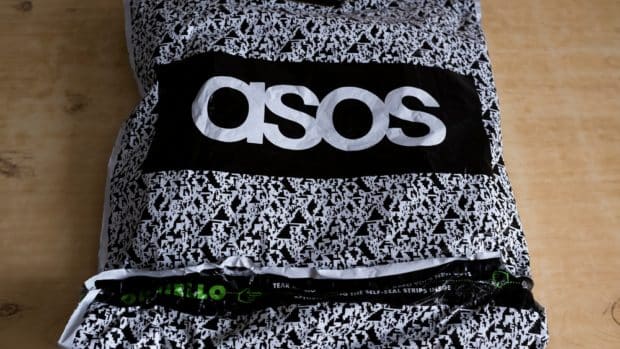Online retail has been a hotbed of M&A activity in recent weeks,
with a spell of investments made by private equity firms or
venture capital funds. Deals have ranged from acquisitions of
listed companies such as TV-shopping business Ideal Shopping
Direct, which was acquired for £78.3 million in April by
private equity firm Inflexion, to smaller investments, such as
the £1.5 million raised by London-based luxury-accessories
etailer Boticca from France-based ISAI in May.
Further, gourmet-meats purveyor Donald Russell has confirmed it
has appointed Cavendish Corporate Finance to handle unsolicited
bid approaches for the business. While Brand Alley, an online
retailer of discounted designer goods, has appointed Merrill
Lynch to raise €100 million (£87 million) in order to
fund its acquisition strategy.
“This is an active space and I expect it to remain active
for some time,” says Raf Goovaerts of The Business Growth
Fund, a new £2.5 billion equity investment fund established
to help small and midsized UK businesses. “Online retail is
particularly attractive to private equity because of its growth
potential. The exit opportunities are also attractive, either
through an eventual float or sale to a trade buyer.”
Knowing your niche
According to Rory Stirling, investment manager at MMC Ventures,
which recently invested in childrenswear etailer
AlexandAlexa.com, the businesses that are attracting private
equity interest are innovative market leaders in a particular
niche or product category.
Cornwall-based apparel cataloguer Celtic Sheepskin specialises in
sheepskin products and ethical clothing. It sold a minority stake
to private equity firm Piper in May. The investment sees the
£8 million company through its next stage of growth, which
will include introducing an additional catalogue for
autumn/winter and recruiting more staff, including a managing
director. “We’ve been growing at 20 to 24 percent for the
last few years,” says Nick Whitworth, who cofounded the
business with his wife Kath. “We know we’ve got the
potential to grow faster, but as a ‘two-man band’ we were running
out of hours in the day”. Whitworth says growing past
£8 million is a challenge for a small team, which is why,
with the help of Piper, Celtic Sheepskin is now seeking the
advice of a marketing and a manufacturing and production
consultant to help streamline operations and introduce more
efficient processes.
The other draw of online retail, particularly for early-stage
investors, says Stirling, is the opportunity to be multinational
from the start. Whitworth has put the wheels in motion for
overseas expansion at Celtic Sheepskin and says the business will
test a multilanguage website within a year’s time. In two to
three years the business will test a country-specific offer with
local customer service, delivery and returns. However, the UK
remains a focus for the business, which aims to double turnover
within the next three to five years.
Alternative to banks
For the retailer, the attraction of private equity is obvious-the
investment allows businesses to take advantage of expert advice,
benefit from an immediate cash injection and grow without the
need for heavy borrowings from the bank.
JoJo Maman B�b�, a retailer/cataloguer selling maternity and
nursery products, sold a minority stake to Magenta Partners in
May after reporting a 50 percent increase in sales from £18
million in 2009 to a projected £27 million in the year to
June 2011, and profits of 8 percent-or £2.16 million. It,
like Celtic Sheepskin, had also grown steadily through the
recession, but founder Laura Tenison says that despite growing
organically, bank funding was very difficult to secure. A
partnership with Magenta, says Tenison, will allow JoJo to go
ahead with all its expansion plans, including international
growth. Following the launch of a multicurrency website in
mid-May, JoJo is analysing where orders are coming from and will
follow up with small, country-specific campaigns such as
affiliates and PR before full rollout.
Bright spots
A Grant Thornton study found that this resurgence in M&A activity
will also mean many firms exiting their investments this year as
opportunities become more attractive. This will inevitably lead
to many more deals in the coming months. UK private equity firms
“are encouraged by improving exit conditions, with
strategic investors increasingly prepared to outbid private
equity players,” says Mo Merali, head of private equity at
the financial adviser. “This was the case with Kiddicare,
where we ran a highly competitive sales process and received
around 20 initial offers from a mix of private equity and trade
players with Morrisons tabling the best offer.”
Yet, what Raf Goovaerts, Rory Stirling and Magenta partner Tom
Matthews all agree on is that although there has been a perceived
improvement in consumer spending-certainly compared with the last
couple of years-trading in the UK will continue to be tough. The
“rays of hope”, as Matthews puts it, are
“innovations online and international
expansion”.
To look to the US for a clue to where the market is heading,
consider ShoeDazzle. Cofounded by celebrity Kim Kardashian,
ShoeDazzle is a fashion website delivering personalised
recommendations for shoes, accessories and handbags to
subscribers for $39.95 a month. In May it completed series D
funding, taking the total investment raised to $60 million. Part
of the investment will be used to expand the shoe subscription
model to a UK audience.








Share